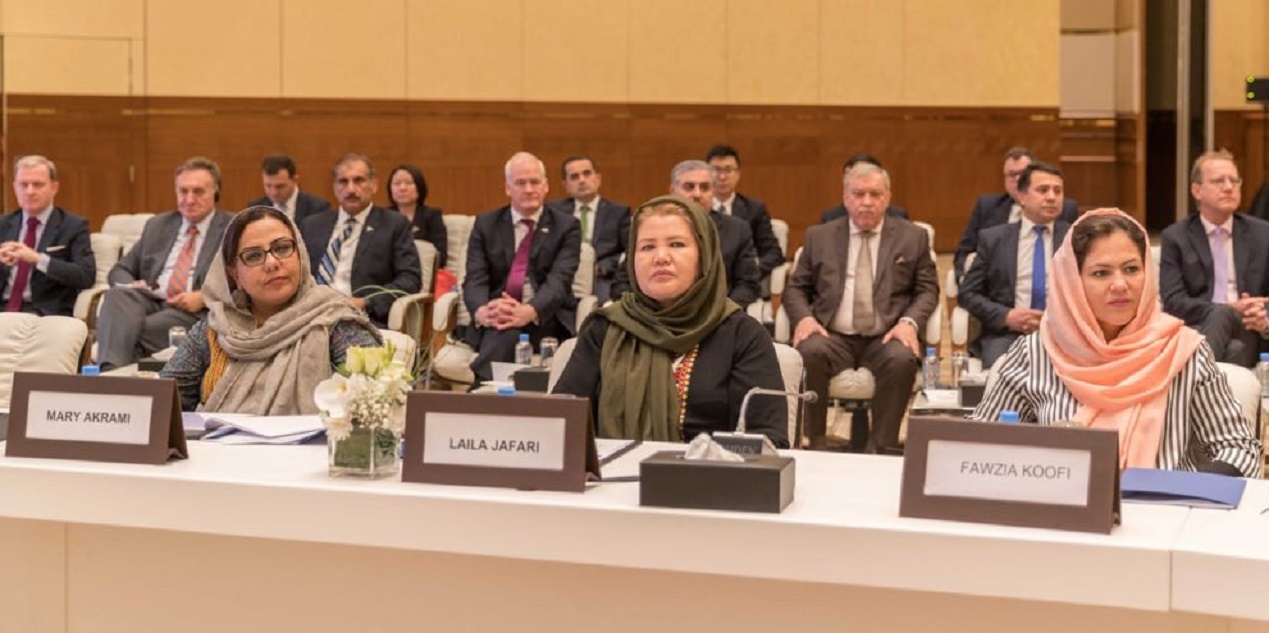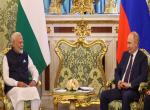For the first time, Afghanistan has secured a seat in the UN Commission on Status of Women (CSW) for a four year term.1 India was the other country to have secured a seat for the 2012-2025 term. The CSW is a pivotal international intergovrnmental body committed to the cause of upholding gender equality and the empowerment of women. Over the years, it has played crucial role in promoting women’s rights and documenting the plight of women around the world. A functional commission of the Economic and Social Council (ECOSOC), it was established by June 21, 1946. China was among the main contenders for winning a seat, but failed to secure enough votes from 54 members.
Afghanistan received 39 votes to find a place at the prestigious body. On 15th September, Adela Raz, Afghanistan’s Permanent Representative to the UN, shared the news in a tweet2 “AFG winning with the highest votes the competitive CSW election today, represents a victory for the process started 19 years ago when, along with our international partners, we committed to the empowerment of our women.” She added, winning the seat was of “critical importance” especially in the context of the ongoing Peace Process “to demonstrate the new Afghanistan”. 3
Afghan Women and the Peace Process
The issue of women’s rights will be a crucial aspect in the negotiations between the current Afghan government and the Taliban aimed at bringing lasting peace in Afghanistan. The US-Taliban Peace Accord signed on 29th February 2020, set out a timeline for the withdrawal of American troops in exchange for the Taliban's renouncing terrorism and entering into peace talks with the Afghan government, who was not party to the deal. After four decades of relentless war, Afghans irrespective of their gender desired an end to the meaningless bloodshed in their country- welcomed the attempt towards ‘peace’. But the question remains - how the life of Afghans, in particular the women, will be impacted by a potential peace deal with the Taliban?
The US once vowed to liberate Afghan women from the draconian repression of the Taliban, but the signed accord offered no guarantees to preserve women’s rights or civil liberties enshrined in the country’s constitution. Throughout the past few years many observers have raised serious concerns about the risk that legitimising the Taliban and their return to some degree of political power in Afghanistan would mean for Afghan women. But any skepticism that had the potential to derail the peace process was deliberately brushed aside in a bid to get the Taliban to the table. To keep the peace process of track, heinous attacks by the insurgent group have been ignored, slightest of advancement in the peace process (for example the Eid Ceasefire by the Taliban) has been hailed as a breakthrough. There was an increasing eagerness to ignore the largely unreciprocated concessions that went in to get the Taliban on the table, so much so, that the insurgent group’s refusal to acknowledge the Afghan government as its principal interlocutor was also overlooked. The Taliban at large did not display any flexibility on any significant issues; while Kabul under the US pressure had to offer compromises time and again, to prevent the collapse of the Khalilzad-Baradar accord.
Since the signing of the peace accord, Kabul remained busy juggling with post accord pulls and pressures, political infighting, insurgency, on one hand and a fast spreading pandemic on the other. Amidst all this, the questions pertaining to the future of millions of Afghan women, girls; appeared to take a back seat. Afghan women over the years have realised that they cannot just be an issue in the negotiations; they must be a party to them. Their relentless perseverance and struggles, paved the way for the inclusion of five women in the 21 negotiating team representing the Islamic Republic of Afghanistan in the intra-Afghan negotiations. 4
Fawzia Koofi, a former parliamentarian and woman’s rights activist and is one of the five female representatives in the negotiating team, while speaking at a webinar5 recently said that ensuring women's participation in the peace process has not been easy -“Most Afghans thought that peace and war are man’s prerogative; women should not be involved in it.” The efforts of Afghan women and international pressure pushed the government to include women in the team –“In a way we are faced with two battlefields; stronger one with the Taliban but internally also we have to fight to get to where we are.” But participation of women in the negotiating team does not itself guarantee a desirable outcome in their favour. Moreover, an assassination attempt6 on Koofi a few days before the start of the talks only amplifies concerns about what the next phase of political life would mean for Afghan women.
Afghanistan has been seeking peace for decades. But in the lasttwenty years, Afghans have seen the benefits of having all the society, both men and women contribute to the progress of their nation. The World Bank data indicates, presently the women constitute 21 percent of the labour force in Afghanistan.7 The progress made by Afghan women has been momentous- they have built schools, served in government, civil- society organizations, persecuted criminals, worked as journalists, de-mined land, made robots, saved lives, represented Afghanistan in sports and thrived as entrepreneurs. In order to achieve sustainable peace, it is imperative that the peace process is broad-based, are reflective of the needs and aspirations of the entire society. RoyaRahmani, the first female Afghan Ambassador to United States argued that “Peace cannot be established by an agreement just between those who hold the guns…Afghanistan has been stuck in a culture of war for too long and women can play a major role in fostering a culture of peace.”8 To achieve that, she stressed on crucial role of international community, which can ensure that the ongoing Peace negotiations occur within the constitutional framework of the country and do not warrant negotiating away of fundamental rights.
Afghan women have been able to remove formidable barriers through resistance, resilience and tireless efforts. At a time when they are left to grapple with uncertainties at multiple levels and face a legitimate fear of women’s rights being compromised during negotiations; securing a seat at CSW is a historic achievement for Afghan women. It not only provides them with an important platform to voice their concern in front of the world and advocate more effectively for their rights; but also backs their battle for the preservation of their hard-won gains of the past two decades.
Endnotes
- “Afghanistan secures a coveted seat at the UN women’s commission”, Al Jazeera, September 15,2020. Available at: https://www.aljazeera.com/news/2020/09/afghanistan-secures-coveted-seat-women-commission-200915110345254.html (Accessed on 18.9.2020)
- Adela Raz (@AdelaRaz) Tweeted on Afghanistan’s historic win at the UN Commission on Status of Women, September 15, 2020. Available at: https://twitter.com/AdelaRaz/status/1305686352906907651 (Accessed on 18.9.2020)
- “Afghanistan secures a coveted seat at the UN women’s commission”, Al Jazeera.Ibid.
- “Afghanistan government announces team for Taliban Talks”.AlJazeea, March 28, 2020. Available at:https://www.aljazeera.com/news/2020/03/afghanistan-government-announces-team-taliban-talks-200327172504636.html (Accessed on 18.9.2020)
- What (Afghan) Women Want? What do Peace talks with Taliban mean for Afghan Women”, Webinar at the Indian Council of World Affairs, June 4, 2020. Available at: https://www.youtube.com/watch?v=KdiWmbkW4ZE
( Accessed on 18.9.2020) - “Female Afghan negotiator wounded in assassination bid”, The Guardian, August 16, 2020, Available at: https://www.theguardian.com/world/2020/aug/16/female-afghan-peace-negotiator-wounded-in-assassination-bid( Accessed on 18.9.2020)
- “Labour Force Female (% of total labour force)- Afghanistan. World Bank Data.June 21, 2020. Available at :https://data.worldbank.org/indicator/SL.TLF.TOTL.FE.ZS?locations=AF (Accessed on 19.9.2020)
- RoyaRahmani, “Afghanistan should be the centerpiece of the peace process.”Foreign Policy, Aug 10, 2020. Available at: https://foreignpolicy.com/2020/08/10/afghan-women-should-be-the-centerpiece-of-the-peace-process/ (Accessed on 19.9.2020)
(The paper is the author’s individual scholastic articulation. The author certifies that the article/paper is original in content, unpublished and it has not been submitted for publication/web upload elsewhere, and that the facts and figures quoted are duly referenced, as needed, and are believed to be correct). (The paper does not necessarily represent the organisational stance... More >>
Image Source: https://www.thedefensepost.com/wp-content/uploads/2019/07/intra-afghan-peace-talks.jpg










Post new comment